Google Search recently marked its 26th anniversary. In this quarter-century, it has turned into the place for finding everything on the internet you dont look up stuff, you google it. It has become second nature to simply tap the Google search bar on your phone as soon as a question pops up in your head. But lately, you must have noticed that your Search experience has become too erratic, particularly since the arrival of generative AI.
Rest assured that you aren’t alone, Google Search results have indeed gotten worse. Google even added AI Overviews as a stopgap solution recently, but it’s unreliable to the point of being unusable. Things like these have added up over the past few months, which is why I have now turned to Google Searchs AI-first alternatives for my internet needs, and I dont feel like turning back.
Using Perplexity as my Google Search alternative
It can do what Google does and more
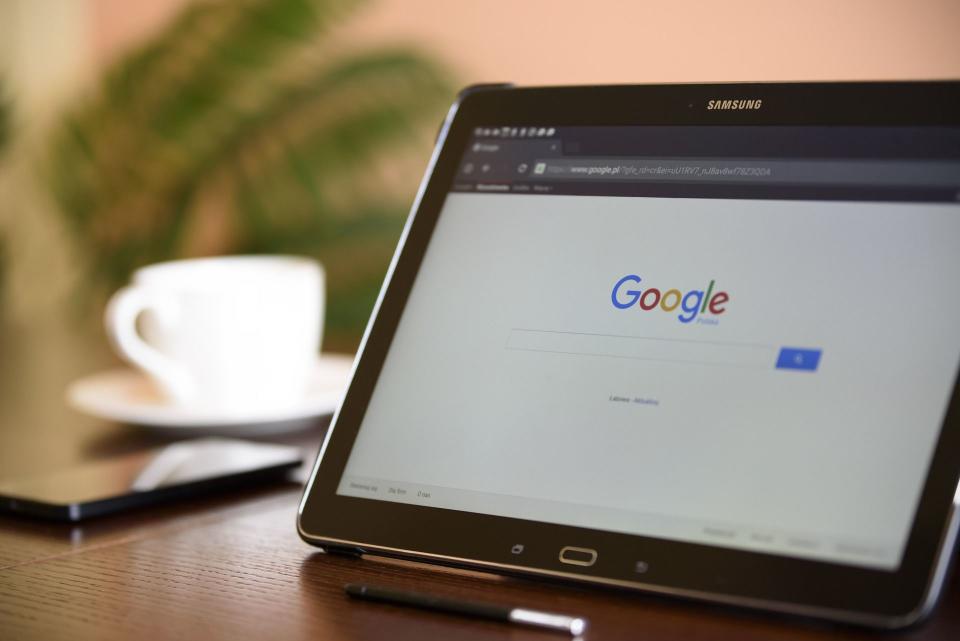
google search page on a samsung tablet
A lot of new-age AI companies have been trying to reinvent search engines from the ground up even the Arc browser has one built in but Perplexity is by far the most popular of them all.
When you send Perplexity your query, it looks up a bunch of search results for you and serves a quick summary. It is particularly helpful, say, when you need a step-by-step guide to something or a palatable gist about a complex subject. People are even using it to get their morning news digest, with the option to dig deeper into a story if something strikes your fancy.
My work as a technology reporter often requires me to refer to a lot of resources for my stories and scan lengthy documents to find a single piece of relevant information. It has helped cut down the time required for such in-depth research by a lot. It can easily find things like user anecdotes from public forums beyond the most common ones (Reddit, Quora, etc.) and point me to the exact piece of text in an article Ive been looking for.
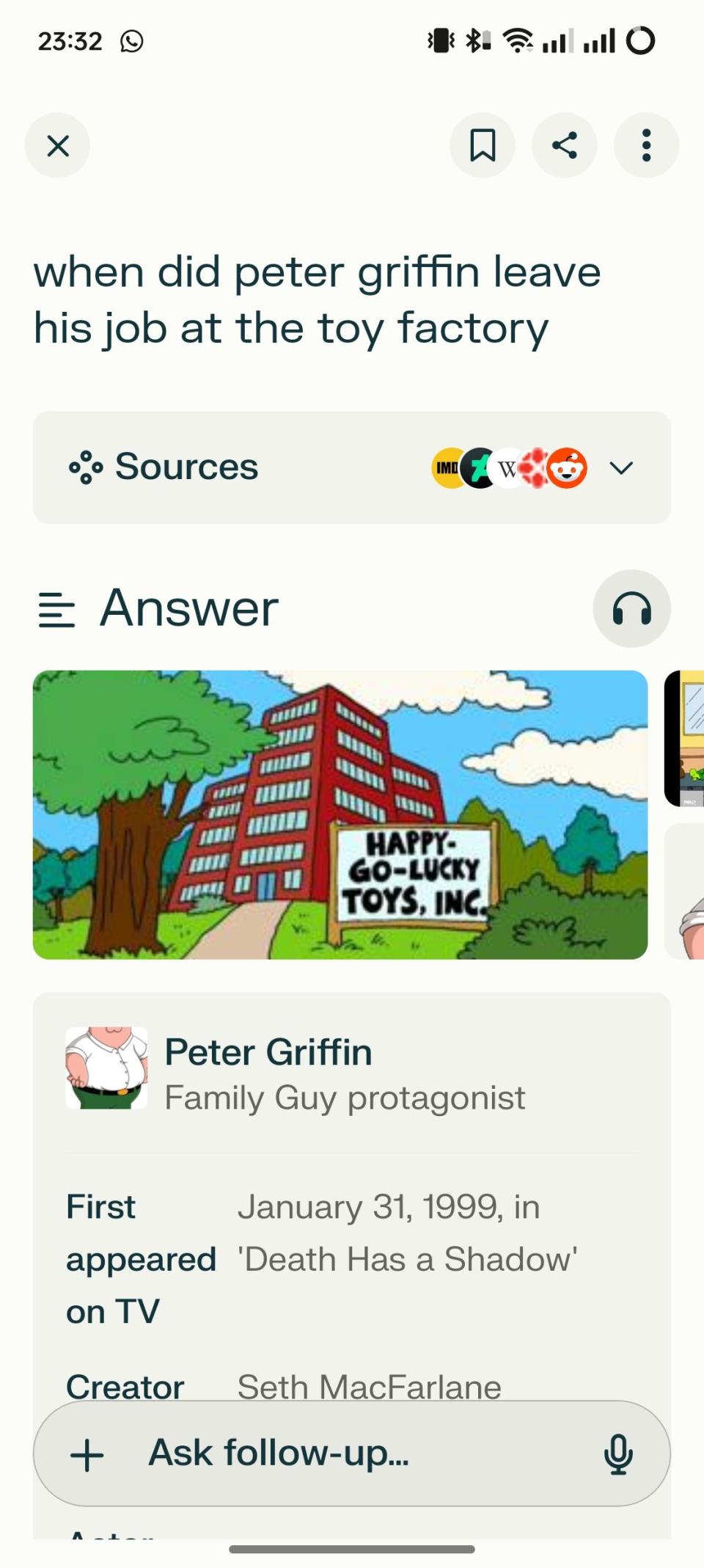

A screenshot of the Perplexity app on Android with a search query
For example, Perplexity came in handy when discussing celebrity voices Gemini should adopt; I could easily compare each celebrity’s voice quality with what I believed to be their most distinctive feature for accuracy. Without it, if I needed to check whether Matthew McConaughey had another prominent accent, Id have to scan tons of interviews and fan pages to find this obscure information.
That AI goodness is useful for my personal curiosities, too. Once, while watching Family Guy, I couldnt recall, for the life of me, what exactly happened when Peter Griffin lost his previous job. I told Perplexity the reason for my mental plight, and it instantly gave me the exact answer I wanted. It took just a few seconds of disruption before I could move on with my life.
This search function is just one part of Perplexity that I use almost exclusively. It has a bunch of other focused modes that are specifically designed for things like math problems, academia, searching for videos, or social discussions, among others. You can try those for yourself to see how they fit your workflow.
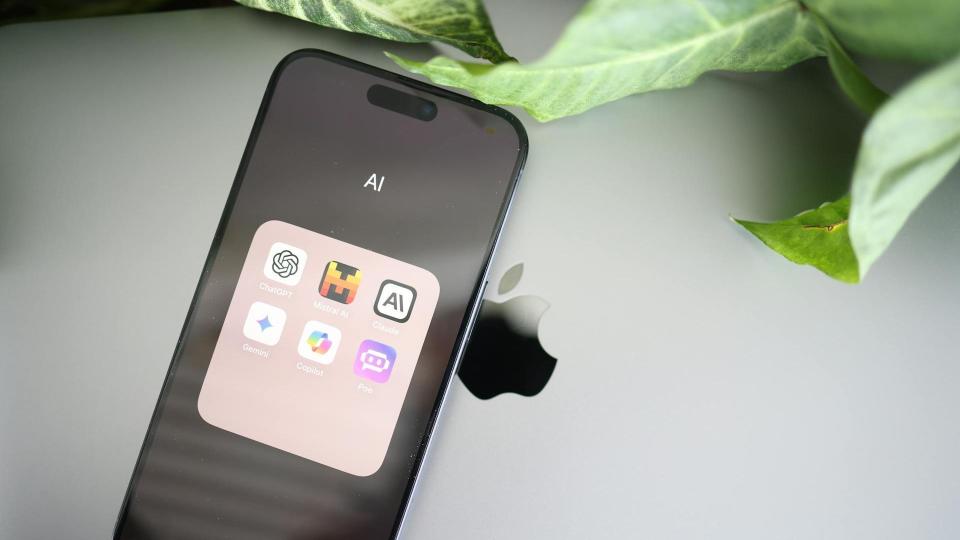

ChatGPT, Gemini, Copilot, Claude, Poe, and Mistral AI apps on an iPhone
Perplexity has its problems, too
Even though Perplexity has integrated into my workflow for the most part, its hard to gloss over many of its flaws that relate both to its functionality and the larger discussion around AI ethics. The AI search engine was flagged for its lack of clear citations not too long ago, which has since improved considerably. The search summary Perplexity produces is now properly linked to all its sources with in-line attributions.
Another, more prominent, issue with Perplexity is regarding its scrapping of internet data without the original publishers’ consent, sometimes even making paywalled content available for free. The AI tool has also been accused of plagiarism in its AI-generated text. In response, the company has come out with a publisher partnership program to share ad revenue with outlets that get featured in its search results.
ChatGPT sits between Google and Perplexity
How I phrase my search queries has changed forever
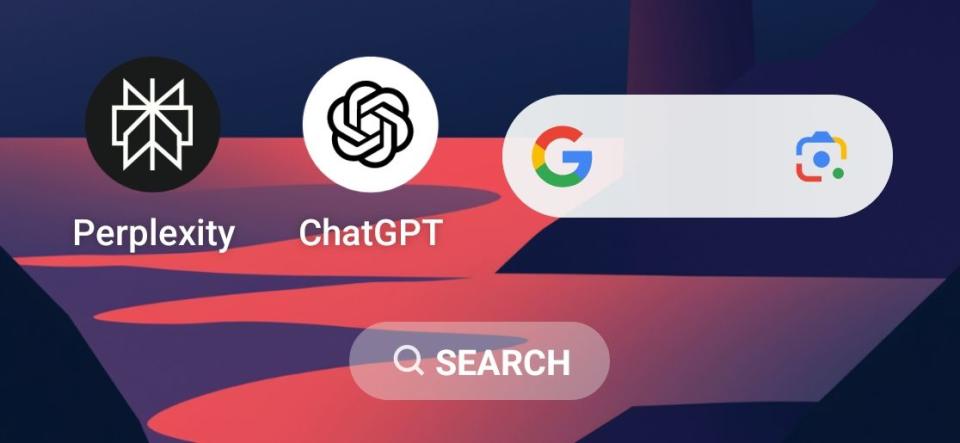

Perplexity, ChatGPT, and Google Search bar on the Android home screen of the OnePlus Open
The Google Search bar squeezed up by Perplexity and ChatGPT on my phone’s home screen perfectly illustrates exactly how much importance it has lost in my life 50%.
ChatGPT isnt a search engine in a typical sense, primarily because its datasets arent always up to date, and it doesn’t check the internet by default before answering your questions (its parent company is working on its own AI search engine).
However, it is still perhaps the best general-purpose AI tool for everything ranging from fixing my grammar in texts when I’m feeling lazy to summarizing my freelance contracts to highlight any clause that puts me at the shorter end of the stick.
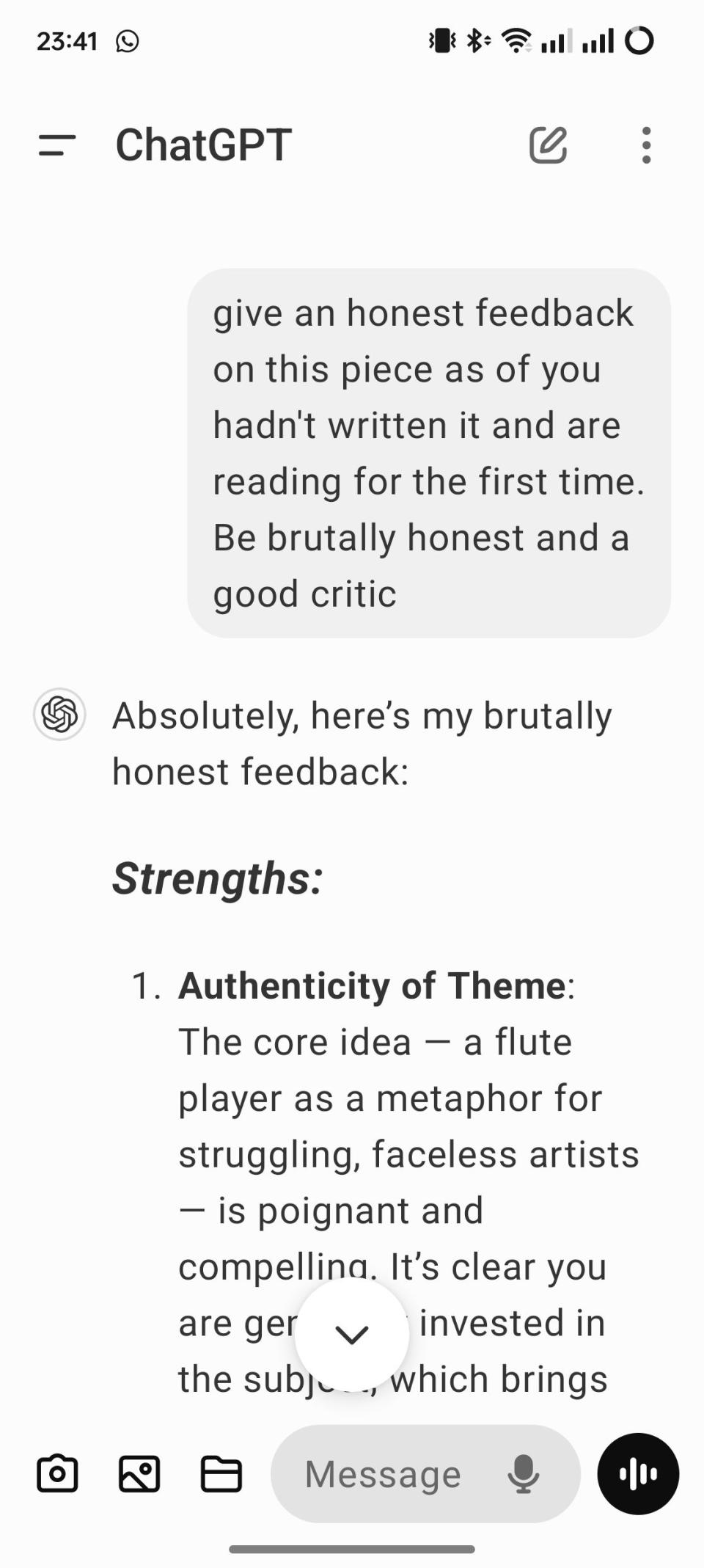

A screenshot of the ChatGPT app on Android with a search query
I use Perplexity to get straightforward answers to my queries, while ChatGPT works as more of my creative bouncing board. I’d have a chat with it to cook up amusing names for my friends’ WhatsApp group and sometimes brainstorm and nail down the central theme of a personal essay I’m writing.
For a pedant person like me who wants that exact expression in his writing, but cant remember, ChatGPT is a godsend (Im aware how ironic it sounds). I can tell it what I want to convey and the jumble of words that’s in my mind, and it will provide the exact phrase Ive been looking for within seconds. Try that with Google Search, and youll end up scouring forums, dictionaries, and thesauruses just to find whats been on the tip of your tongue.
This has had such an impact on me that it has completely changed how I frame questions. Instead of putting together a specific string of keywords appended with source identifiers like Reddit to get the correct results, I could just ask my question the same way Im talking here. Sure, it takes more space than a short Google Search query, but this way, I can elaborate on exactly whats on my mind. And with AI, the more context you provide, the better the results.
Gemini is currently a mixed bag
Frankly, Gemini is by far the easiest chatbot to access on any of the top Android phones you can simply swipe up from either bottom corner to bring it up. Yet, it is my least-used AI tool. Gemini has not only yet to catch up to ChatGPT in everyday tasks, but its AI Overviews in Search has also had far too many flubs to rely on it when compared to the products designed from the ground up for AI.
I continue to rely on Google Search for any factual information that is still neatly laid out in the knowledge graph, like finding the name of a movies director. And Googles in-search dictionary is by far the fastest way Ive found for looking up synonyms I even have a custom search engine set up for this specific function in my browser.
However, my dependence on Google Search has come down quite a bit, with ChatGPT and Perplexity now handling the bulk of my web queries. In an ideal world, Id be able to combine all the different purposes into a single, reliable AI product, whose results I can trust 100 percent without fact-checking. But unfortunately, the world we live in is far from that.




